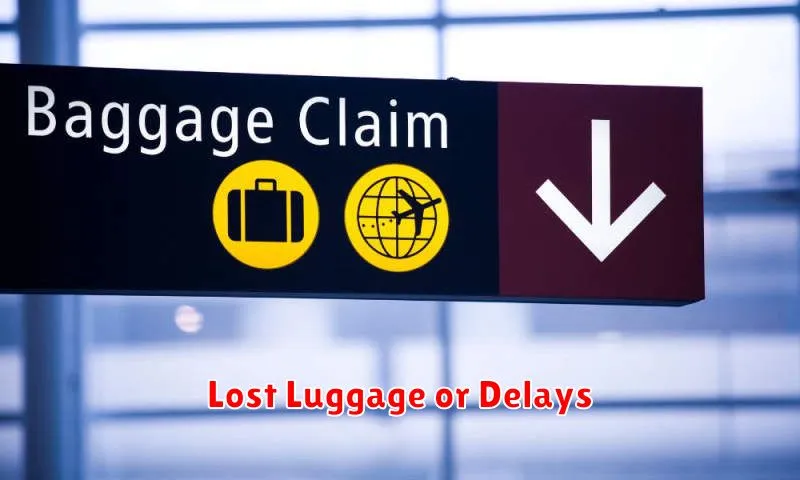Planning a domestic trip? Considering skipping travel insurance? While international travel often brings insurance to the forefront, many travelers question its necessity for domestic journeys. This article explores the key factors to consider when deciding whether travel insurance is a worthwhile investment for your next trip within the country. We’ll delve into the potential risks and unexpected events that can disrupt even the most meticulously planned domestic travel, from flight cancellations and medical emergencies to lost luggage and unforeseen weather events. Understanding these risks will empower you to make an informed decision about protecting your trip and your finances.
Is travel insurance for domestic trips truly essential, or is it an unnecessary expense? Many travelers find themselves weighing the costs and benefits. While the perceived risks might seem lower when traveling domestically, unforeseen circumstances can still significantly impact your trip and your wallet. This article examines the specific benefits of domestic travel insurance, including coverage for trip interruptions, medical expenses, baggage loss, and other potential disruptions. By carefully considering the potential scenarios and comparing the costs of coverage with the potential financial losses, you can determine whether domestic travel insurance aligns with your needs and risk tolerance.
When to Consider Domestic Insurance
While domestic travel often feels less risky than international trips, unforeseen circumstances can still disrupt your plans and incur unexpected expenses. Therefore, considering travel insurance for domestic travel can be a wise decision in certain situations.
Non-refundable bookings are a key factor. If you’ve pre-booked flights, accommodations, or tours with strict cancellation policies, insurance can protect your investment should you need to cancel due to covered reasons like illness or severe weather. This is particularly important for expensive trips or during peak season when prices are higher.
Consider insurance if your trip involves specialized equipment, such as sporting gear or expensive electronics. Coverage for lost, damaged, or stolen items can provide valuable financial protection.
If you’re traveling to a region prone to natural disasters or experiencing political instability, travel insurance may offer coverage for trip interruptions, cancellations, or emergency evacuations.
Finally, if you have pre-existing medical conditions, ensure your health insurance provides adequate coverage while traveling domestically. If not, consider a travel insurance policy that supplements your existing coverage for medical emergencies during your trip.
What It Covers vs International Policies
Domestic travel insurance often focuses on covering issues specific to traveling within your own country. This commonly includes trip interruptions or cancellations due to unforeseen circumstances like severe weather, illness, or sudden job loss. It can also cover lost or delayed baggage, medical emergencies (though your regular health insurance may already provide some coverage), and rental car damage.
In contrast, international travel insurance policies typically offer a broader range of coverage. In addition to the benefits found in domestic policies, they frequently include provisions for emergency medical evacuation, repatriation of remains, and political unrest. They are also more likely to offer foreign currency exchange assistance and coverage for terrorism related incidents. The exact coverage can vary significantly depending on the policy and the destination country.
A key distinction is the level of medical coverage. While domestic policies often offer supplemental medical coverage, international policies usually provide more comprehensive medical expense coverage, given that your regular health insurance may not be valid abroad.
Medical Emergencies Still Happen

Even when traveling within your own country, unforeseen medical emergencies can arise. A sudden illness or accidental injury can happen anywhere, regardless of proximity to home. While you may be familiar with your local healthcare system, navigating medical care in an unfamiliar city, even domestically, can be complicated and costly.
Medical evacuation may be necessary in severe cases, transporting you to a facility equipped to handle your specific needs. These costs can quickly escalate, impacting your finances significantly. Travel insurance can provide coverage for these unexpected medical expenses, offering financial protection and peace of mind.
Trip Cancellations Due to Weather

Weather is a common culprit for trip disruptions, especially for domestic travel. Unexpected storms, blizzards, and hurricanes can lead to flight cancellations, road closures, and overall unsafe travel conditions.
Travel insurance can provide coverage for these weather-related cancellations, often reimbursing pre-paid, non-refundable trip costs like flights, accommodations, and tours. Some policies may also cover expenses incurred due to delays, such as additional accommodation costs if you are stranded.
It’s important to review the policy details to understand the specific weather events covered and any limitations or exclusions that may apply. For example, some policies may not cover cancellations due to foreseeable weather events like hurricanes if a warning was issued before you purchased your travel insurance. Understanding the specific terms and conditions of your policy is crucial.
Lost Luggage or Delays

Even on domestic trips, luggage can be lost or delayed. While the airline is responsible for locating lost luggage, it can take time. Travel insurance can provide coverage for essential items you may need to purchase while your luggage is delayed, such as toiletries and clothing.
This coverage can help alleviate the inconvenience and expense of a baggage delay. Consider the potential costs of replacing essential items if your luggage is significantly delayed when deciding if travel insurance is right for you. Policies vary, so check the specific coverage limits and reimbursement requirements.
Peace of Mind for Any Distance
While domestic trips might feel less risky than international travel, unforeseen circumstances can still disrupt your plans and incur unexpected expenses. Travel insurance offers a safety net, regardless of the distance you’re traveling.
Consider the potential for flight cancellations due to weather, medical emergencies requiring hospitalization, or lost luggage containing essential items. These situations can happen anywhere, and travel insurance provides financial protection and assistance when you need it most.
Whether you’re driving across state lines or flying to a neighboring city, having travel insurance can provide valuable peace of mind, allowing you to fully enjoy your trip knowing you’re prepared for the unexpected.

